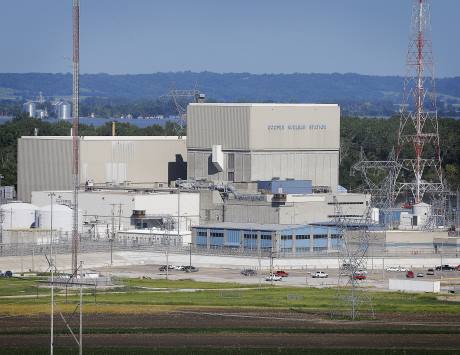Nebraska Public Power District (NPPD) has secured fuel reloads up to 2034 for its Cooper nuclear power plant under a newly signed contract with Global Nuclear Fuels (GNF). The $100 million contract should provide enough fuel for the rest of the reactor's lifetime.
 |
| The contract secures all the fuel Cooper is expected to need for the rest of its operating life (Image: NPPD) |
The contract covers nine reloads for the 810 MWe boiling water reactor and runs to 2034, when the reactor's operating licence is due to expire. At that date the plant will have been in operation for 60 years.
GNF has fuelled Cooper since 2000, when the GE-Hitachi-Toshiba joint venture was formed. From its start-up in 1974 until 1999 the reactor was fuelled by the nuclear fuel division of GE Nuclear, and GNF CEO Kevin Walsh highlighted the lifetime relationship between fuel supplier and plant. "Our support of Cooper spans more than four decades and this contract means we will provide the plant with fuel to operate across a 60-year lifespan," he said.
Cooper Chief Nuclear Officer Oscar Limpias said the deal was important for customers, securing a reliable and economical source of fabricated nuclear fuel assemblies for the plant's long-term operation. He also anticipated additional synergies during refuelling outages through an existing contract for outage and inspection services with GE Hitachi.
The GNF2 high performance fuel that will be supplied under the contract will be fabricated by GNF at its facility Wilmington, North Carolina. According to GNF, the advanced fuel design saves utilities money by reducing the total amount of uranium and the average enrichment in fuel reloads.
Researched and written
by World Nuclear News







_94566.jpeg)






